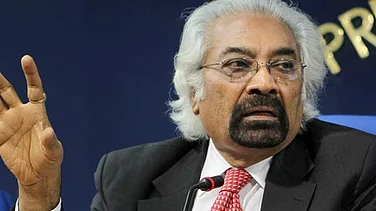Asom Gana Parishad (AGP) on Monday announced it’s decision to break ties with the BJP over the Citizenship Bill.
AGP president Atul Bora announced decision to snap ties after meeting Home Minister Rajnath Singh in Delhi.
“We have met almost everyone including the Joint Parliamentary Committee, President, Prime Minister and requested them to scrap the bill but unfortunately that didn’t happen. As we were part of the government, we tried our best to stay with the government. But we have realised that the BJP government is bound to pass the bill. After meeting home minister Rajnath Singh, we are sure about that,” Bora said.
Advertisement
Earlier during the day, AGP founder president and former two-time Chief Minister Prafulla Kumar Mahanta said, “It’s already been decided in the party. There’s no point to stay in the alliance now.”
In the 126-member house, the BJP along with its allies AGP and Bodoland’s People Front (BPF) have 86 seats of which 61 belong to the BJP, 14 to the AGP and 12 to the BPF. The AGP pulling out does not seem to pose a threat to the government.
Meanwhile, news agency PTI reported the Union Cabinet has cleared the redrafted Citizenship Amendment Bill, which seeks to provide Indian citizenship to non-Muslims from Bangladesh, Afghanistan and Pakistan, officials said.
Advertisement
A meeting of the Union Cabinet, chaired by Prime Minister Narendra Modi, cleared the bill and it is expected to be tabled in Lok Sabha Tuesday.
Large sections of people in Assam and other northeastern states have been protesting against the bill, saying it would nullify the 1985 Assam Accord under which any foreign national, irrespective of religion, who had entered the state after 1971 should be deported.
The fresh bill seeks to amend the Citizenship Act 1955 to grant Indian nationality to people from minority communities -- Hindus, Sikhs, Buddhists, Jains, Parsis and Christians -- from Afghanistan, Bangladesh and Pakistan after six years of residence in India instead of 12 even if they don't possess any proper document.




















